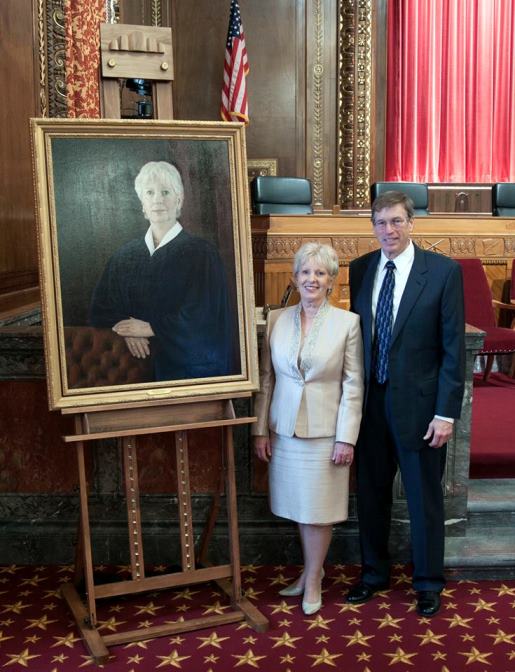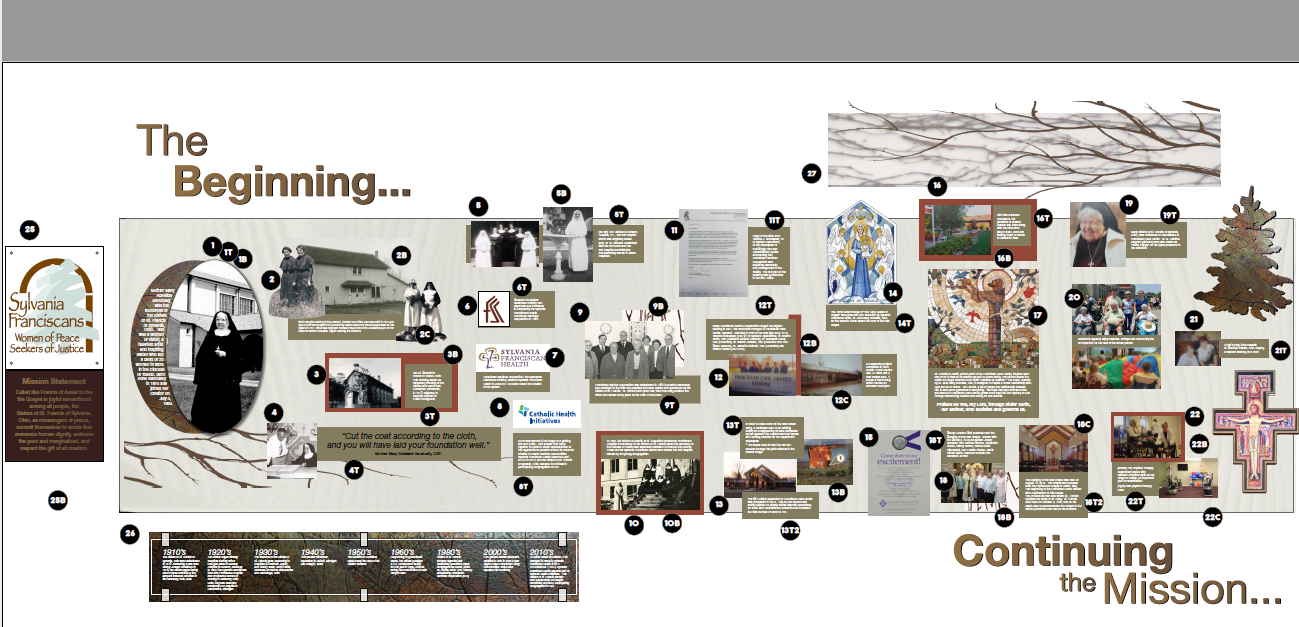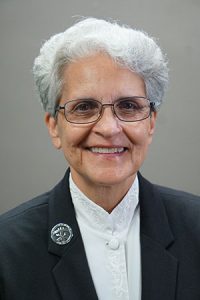
Love changes everything
February 10, 2017
Preserving our heritage
February 24, 2017By Sister Nancy Linenkugel, OSF
I look at the graduate students in front of me and think, with my graying hair and the increasing interval since I ended my hospital CEO days about 15 years ago now, how relevant am I in health services administration anymore?
Not long ago faculty in the health services administration department (a group of nine teaching in the undergraduate as well as in the graduate programs) had a discussion about how we each saw ourselves as a teacher and we chose from this list:
- Expert
- Midwife
- Leader of an Expedition
- Learned Guide
- Guardian of the Craft
- Shepherd
- Boot-Camp Sergeant
- Motivational Speaker
- Advocate for Students
- Facilitator
- Sage
Discussion was robust and energetic. Most took a combination of descriptors listed because teaching is often situational. For example, presenting new content requires being an expert; because it’s new, this evokes the idea of an expedition, so you lead that; to get others to embrace something new requires a motivational approach and, from time to time, a sergeant approach. So picking one from the list above just didn’t do it for most of the faculty members.
Then eyes turned to me to see what I would say. Being department chair as well as director of the MHSA program (masters in health services administration), gives me a unique role of teaching plus administration. I was very careful in what I picked from the list.
It felt a little like being in a science fiction movie when time stops and it’s just you and your thoughts. There’s no time to think because all are expecting an answer, but there’s all the time in the world to think because it’s your answer.
I looked around the conference room table and quickly realized that I was the only alum from this very MHSA program that we continue. The program was founded in 1958 and served mostly religious sisters in those early days who needed training to run their orders’ hospitals. Nobody else in the room had the ties to the past that I had. In fact, over the past 59 years of the program, no other alum has ever been tapped to direct it. And no one else around the table had been a hospital CEO.
Immediately details came to mind from my early days in this program back in 1978, a very long time ago. Professional attire is required on campus every day. This is a professional program. When you don’t have class, you’re in the library. A Monday-Friday 8A-5P work week is required in order to get used to the real work world that comes once you get “out there”. No employment outside of class. Your best work is required every minute, every course, every assignment, every everything. Learn all you can and be valuable to your residency preceptor at the hospital.
More thoughts sped through my mind as I compared those old days to now. Students today don’t need to spend so much time in the library because their phones are libraries. The dress code has been relaxed a little over the years because professional attire is now required for only certain courses and events, evidence of a more relaxed culture toward business casual. Graduate students today often have to hold outside employment in order to pay for schooling. Today almost a third of students select pathways in healthcare administration that aren’t in hospitals. But we surely do still expect top performance in everything because this remains a professional program.
So much has changed. So much has stayed the same.
As I snapped back into the present and looked around the table at the expectant faces of colleagues awaiting my pick from the list, it was totally clear in my mind what I would pick. There’s one thing and only one thing: “Guardian of the Craft”.
I explained this as follows: “While there is constant change in the what, the how, and the where of preparing students for positions in health services administration, there’s no change to the why: we make organizations better for patients, for long-term care residents, and for agency clients. At the end of everything we do, there’s a person needing care and attention. It’s not about a prestigious title or high salary—it’s about being that servant leader. And if I can get that across to our students, I can look toward my sunset with satisfaction.”







